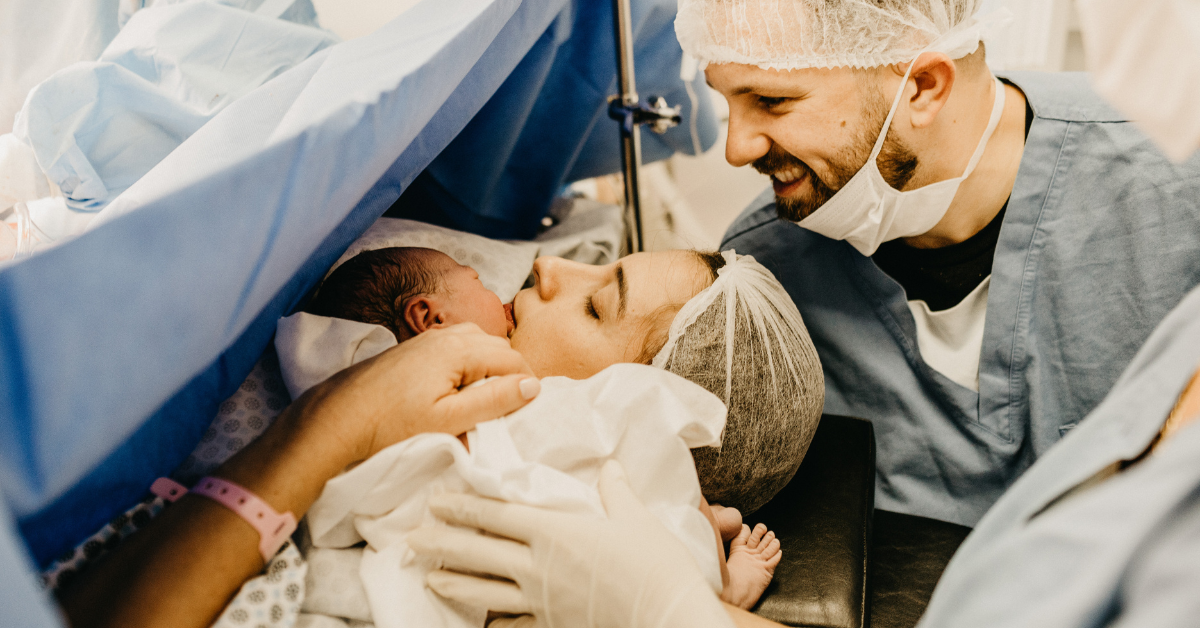
Childbirth Injuries: 3 Conditions You Need to Know About

*Collaborative Post
For many mothers, the joy of childbirth can soon be followed by a deep fear that something has gone wrong. Having babies is an exciting and life-changing experience, but it can also be risky. It’s important to know the signs and symptoms of common childbirth injuries so you’re prepared if they happen to you or someone you love. Understanding these risks can help ensure that any medical problems that occur during or after delivery are quickly addressed and treated properly. By being informed about the most common conditions caused by childbirth injuries, you can make sure your health is in tip-top condition for years to come.
Read on and learn everything you need to protect yourself from these potential problems…
Is it normal to experience problems after childbirth?
For new mothers, childbirth can be a daunting and overwhelming experience. It’s important to understand that some level of birth trauma is common and also completely normal, especially regarding physical trauma to the pelvic floor and vagina. While most women recover completely with no long-term issues, some may experience ongoing problems such as pain, scarring, or heaviness in the vagina. These issues can lead to discomfort and distress, affecting sexual function and overall quality of life. However, it’s important to note that not all women require surgical intervention. If you are experiencing ongoing problems after childbirth, don’t hesitate to seek medical attention to find what is right for you. Remember, it is normal to experience some difficulties after childbirth, but you shouldn’t ever have to suffer in silence.
3 Common Childbirth Injuries
Vaginal scarring or tearing
Vaginal tearing is an all-too-common occurrence during delivery, with most women needing stitching to close the wound. While the stitches dissolve over time and the area can heal on its own, there is a risk for some women of developing scarring or other issues. Although this may remain symptom-free for some, it can also cause physical pain, especially during intimate moments. Even worse, it can lead to a loss of self-confidence. Fortunately, there are multiple approaches to managing this condition, including vaginal dilators, stretching, and even surgery if necessary. With proper care and treatment, women can heal from childbirth injuries and regain their full health and well-being. It’s important to speak with a medical professional if you are experiencing symptoms of vaginal scarring or tearing.
Pelvic Organ Prolapse
It is common for new mothers to experience a sense of heaviness in the vagina, which is usually temporary and resolves itself within a year of delivery. However, if the pelvic floor is severely damaged during childbirth, this feeling may persist and could be a sign of something more serious. Pelvic organ prolapse after childbirth happens when the pelvic organs, such as the vagina or cervix, start to protrude into or out of the opening of the vagina. This is caused by weakened tissues and can result in excess skin and unusual bowel movements. Some of the symptoms include a feeling of something falling out of or inside the vagina, which can be uncomfortable and requires pushing back in. Pain or discomfort during sexual intercourse is another common symptom, as well as urinary incontinence or uterine prolapse. Women may also notice skin hanging out after birth, or a low cervix. Understanding how to properly take care of your pelvic floor post-delivery is crucial in avoiding the long-term effects of childbirth.
Anal Incontinence
One such challenge of childbirth is the risk of injury to the pelvic floor muscles surrounding the back passage, also known as the anal sphincter. Injuries to this delicate muscle complex can result in a distressing condition known as anal incontinence, where women experience loss of control over their stool and flatus. While most women recover from this injury within a few months, others may suffer from it for much longer. Seeking the assistance of a pelvic floor specialist can help alleviate this painful and frustrating symptom, enabling women to regain control of their bodily functions and enjoy their new bundle of joy.
What you need to remember
So, there you have it, mama! Giving birth can be wonderful but also an overwhelming experience, but with the right information and support, you can overcome any challenges that come your way. It’s important to remember that experiencing childbirth injuries is normal, and seeking help is a sign of strength, not weakness.
By taking care of your physical and emotional well-being, you can heal from these injuries and continue to thrive as a new mother.
Don’t be afraid to reach out to healthcare professionals or support groups, as they can provide valuable guidance and resources. Remember, you’re not alone in this journey, and we’re all in this together.
*This is a collaborative post. For further information please refer to my disclosure page.




